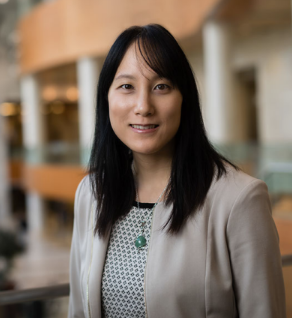 “Patients with rare liver disease are often quite engaged in research because they understand how much we still have to learn,” said Dr. Cheung.Dr. Angela Cheung understands why her patients with autoimmune liver diseases are frustrated. Little is known about these rare diseases, and treatments can often only delay, but not prevent, a liver transplant.
“Patients with rare liver disease are often quite engaged in research because they understand how much we still have to learn,” said Dr. Cheung.Dr. Angela Cheung understands why her patients with autoimmune liver diseases are frustrated. Little is known about these rare diseases, and treatments can often only delay, but not prevent, a liver transplant.
Not only that, there are few accurate markers of disease progression, known as biomarkers, which tell doctors whether treatments are working or not. Having accurate biomarkers would also help with knowing how patients will do in the future and with the development of new treatments. Dr. Cheung and her team are working to identify biomarkers for autoimmune hepatitis, primary biliary cholangitis, primary sclerosing cholangitis and other conditions related to liver disease.
In addition, she is also looking at how to improve the transition from pediatric to adult care for children with liver disease. This transition can be daunting, and some patients stop taking treatments or seeking care for their lifelong condition. Dr. Cheung will work with patient partners and healthcare providers to develop a transitional care program that will be piloted in Ottawa, and study whether it meets patients’ needs.
“Patients with rare liver disease are often quite engaged in research because they understand how much we still have to learn,” said Dr. Cheung.
Dr. Cheung was recently appointed as an associate scientist in the Clinical Epidemiology Program at the Ottawa Hospital Research Institute. She is a clinical hepatologist at The Ottawa Hospital, and an assistant professor at the University of Ottawa.
The Ottawa Hospital is a leading academic health, research and learning hospital proudly affiliated with the University of Ottawa.
